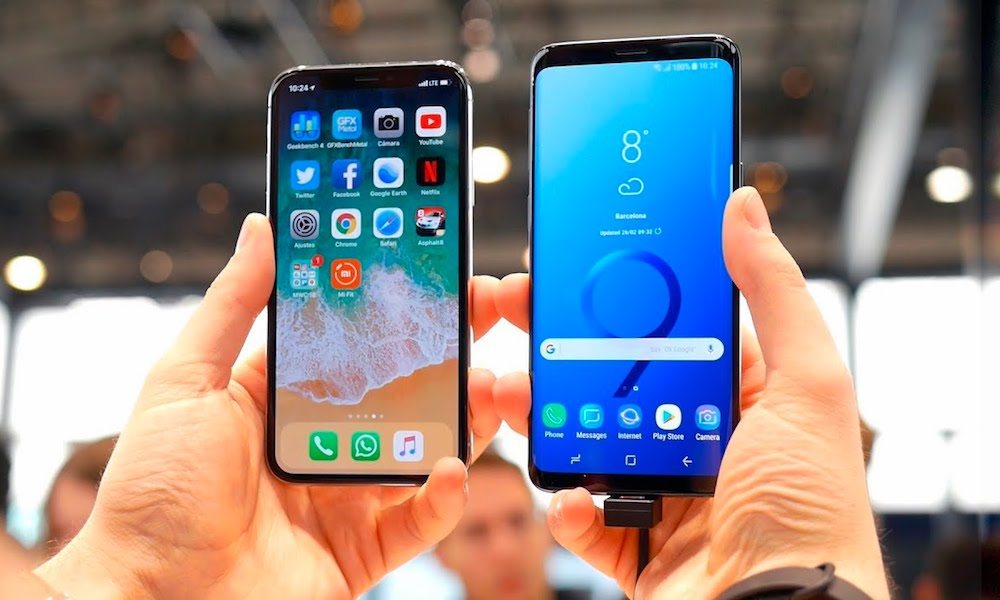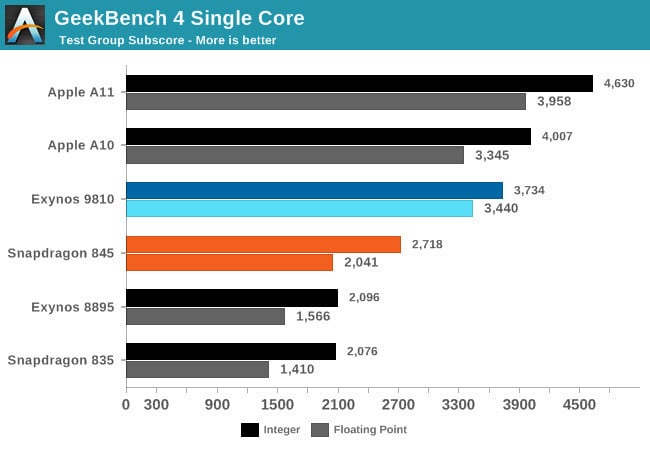iPhone 7, 8, X Dominate Samsung Galaxy S9 in New Speed Tests
 Credit: Urban Tecno
Credit: Urban TecnoToggle Dark Mode
Samsung over the weekend unveiled its next-generation Galaxy S9 and S9+, which represent the South Korean tech titan’s 2018 flagship offerings and boast a myriad of cutting-edge features and innovations.
But while they may be the company’s latest, greatest, and most powerful smartphones on offer, a new slate of benchmark scores published this week reveal they’re not quite as powerful as their closest competition.
Samsung’s Galaxy S9 duo is powered by either the Qualcomm Snapdragon 845 SoC (U.S.A. & China) or Samsung’s proprietary Exynos 9810 Octa (Europe & Middle East). And though the Galaxy S9/S9+ duo is powerful in its own right, it turns out those devices are simply no match against Apple’s latest iPhone 8, iPhone X, and even the company’s iPhone 7 and 7 Plus from 2016 — all of which handily put the S9 duo to shame.
Both Apple’s iPhone 8 and iPhone X are powered by Cupertino’s latest A11 Bionic CPU, while the iPhone 7 and 7 Plus are powered by the almost two-year-old A10 Fusion.
Meanwhile, Samsung decided to “go both ways” with its Galaxy S9 and S9+ — putting a Snapdragon 845 in some units, and an Exynos 9810 Octa in others — which interestingly appears to have resulted in notable performance disparities between them, as well.
Galaxy S9 Geekbench 4 Scores
According to Anandtech’s independent testing (which surveyed performance scores using Geekbench 4), Apple’s A11 and A10 earned single-core performance scores of 4,630 and 4,007, respectively. In comparison, Samsung’s proprietary Exynos 9810 Octa earned just 3,734.

Even more pitiful was the 2,718 single-core performance score garnered by Qualcomm’s “cutting-edge” Snapdragon 845. Meanwhile, Samsung’s previous-generation Exynos 8895 and the equally-old Snapdragon 835 were seen trailing in the distance.
Breaking Down the Numbers
Anandtech’s testing culminated in both Integer and Floating Point scores for single-core performance.
According to Primate Labs, an Integer score is used to measure your system’s performance “by performing processor-intensive tasks that make heavy use of integer instructions,” such as core and background system processes — whereas “floating points” are used to measure performance “by performing a variety of processor-intensive tasks that make heavy use of floating-point operations.”
Such tasks, for instance, include graphic rendering, content creation, and pushing high-performance applications.
Notably, the only area where Samsung’s Exynos 9810 appears to have (slightly) pulled ahead, is when comparing it against Cupertino’s previous-generation A10 Fusion in Floating Point performance. There, the Exynos 9810 scored 3,440, in comparison to the A10’s 3,345.
In all other tests, however, the verdict is clear: Apple’s A-series silicon continues to run full circles around its closest competition in the mobile chipset space.
Learn More: 5 Samsung Galaxy S9 Features iPhone Doesn’t Have (Yet)






